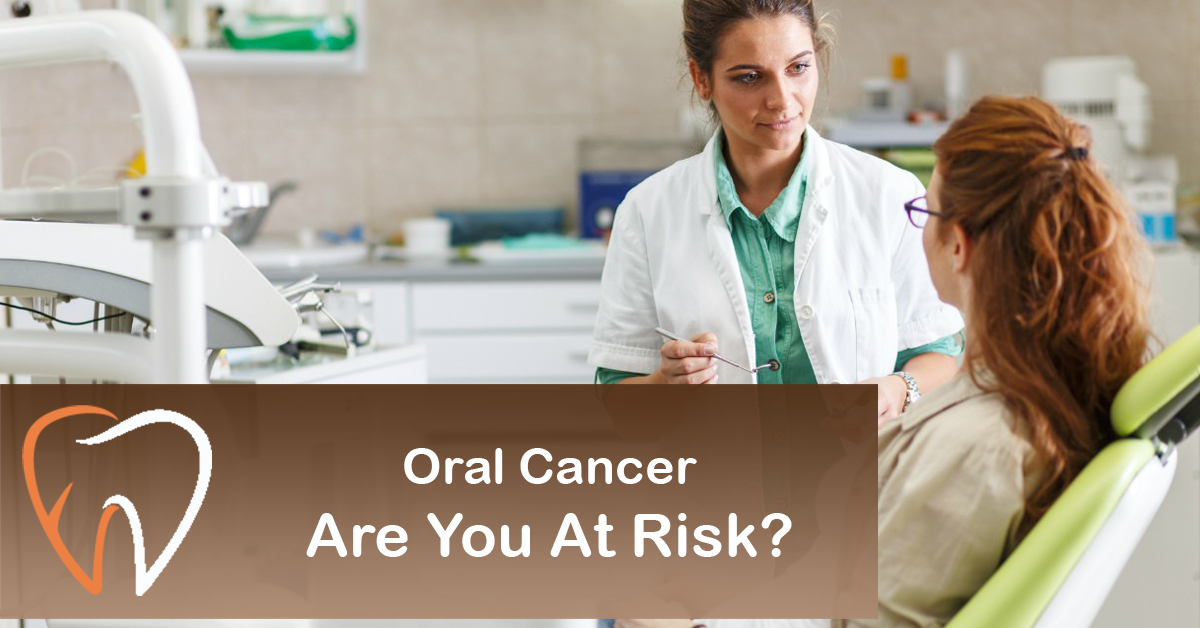
When you visit the dentist’s office for a checkup, they are not only looking for cavities and cleaning your teeth. They are also checking for oral cancer.
Oral cancer is part of a group of cancers relating to the head and neck called “oral cavity and oropharyngeal cancers.” They include cancers of the mouth, cheeks, lips, tongue, hard and soft palates, and throat.
During a dental exam, the dentist checks for sores, lesions, discolorations, and any other unusual changes to mouth tissue. Oral cancer typically manifests as a growth or sore in the mouth that does not go away.
“Oral cancer typically manifests as a growth or sore in the mouth that does not go away.”
Are you at risk?
It is important to be aware of the risk factors for oral cancer:
- Tobacco use (cigarette, cigar, pipe, chewing tobacco, snuff) is the largest risk factor for oral cancer. 85% of head and neck cancers are linked to tobacco use.
- Frequent alcohol consumption. 7 out of 10 people with oral cancer are heavy drinkers.
- Consuming both tobacco and alcohol raises your risk even more.
- Betel quid and gutka. Betel quid is a combination of areca nut, slaked lime, catechu, and various other ingredients, commonly used as a chewing substance in many parts of Asia. Gutka is a combination of betel quid and tobacco.
- Certain strains of the human papillomavirus (HPV)
- Prolonged UV exposure
- Weakened immune system
Men are twice as likely to get this type of cancer than women. The risk also increases with age, especially for those over 55.
Prevention and detection tips:
- Avoid all forms of tobacco.
- Limit alcohol consumption.
- Eat a balanced and nutritious diet that is high in vegetables and fruit.
- Protect yourself against HPV infections.
- Limit time in the sun and use sunscreen.
- Check your mouth regularly for sores, lumps, and red or white patches, and notify your dentist of any concerns.
- Do not let your dental checkups lapse.
Contact our West Loop office for more information and a free oral cancer screening during National Oral Cancer Awareness Month in April.




